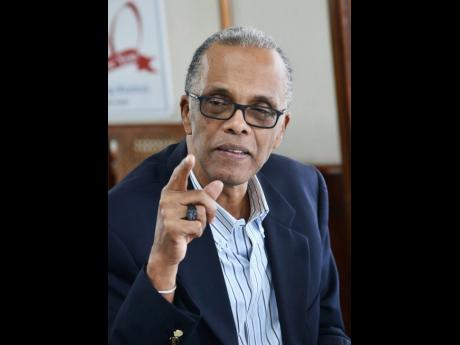The CCJ: decolonisation, distraction and democracy
Decolonisation is a process by which nation states reduce their dependency on institutions, structures and processes imposed, copied or inherited from the colonial experience. The ultimate aim is to fashion such to reflect the local realities.
The process is a complex exercise varying in length, character and prone to a number of challenges, distractions, resistance and setbacks. Sometimes initiatives have to be undertaken by visionary leadership moving ahead of the general edification of the populace.
A failure to satisfy expectations invariably gives rise to calls for the return to the 'good ol' days'.
The leader of Her Majesty's Loyal Opposition has described the current debate on replacing the Privy Council (PC) with the Caribbean Court Of Justice (CCJ) as Jamaica's final appellate court as a " distraction". The general reason given is that it shifts the national attention from dealing with the dire economic realities that currently face the country.
In a sense, Mr Holness is right, and, having made the point, he should, therefore, seek to limit, or remove entirely, that distraction. The issue, then, is about getting political consensus on the matter.
Background
Our colonial masters did not involve the general public in the fashioning of our judicial system.
Furthermore, the Privy Council was not entrenched - deeply or otherwise - in the Constitution of Jamaica. Hence, a simple majority in both Houses of Parliament is all that is needed for its removal.
The rationale informing that arrangement was that the Privy Council as Jamaica's final appellate court was to be a temporary arrangement until the country developed the requisite skill, experience, confidence and trust to have its own final appellate court.
At present, the local judicial system is beset by a number of problems directly caused by insufficient budgetary allocations since political Independence -if not before.
Jamaica was among the founding fathers of CARICOM and had been involved in the establishment of the CCJ. It has duly made its financial contribution, which is a very significant, sum (some US$23million). However, Jamaica has refused to make the necessary constitutional amendment to facilitate its accessing the appellate jurisdiction of the CCJ.
Both political parties seem to agree that now is an appropriate time to de-link the Privy Council. The contention seems to be centred on its replacement and the manner in which such replacement should be entrenched in our Constitution.
The People's National Party is of the view that the CCJ should be that replacement and should be 'ordinarily' enshrined, requiring a two-thirds majority of both Houses of Parliament.
The JLP's present position is that that replacement should be a local Jamaican Court of Justice (JCJ) and that the public should be consulted via a referendum. So the JLP is holding steadfastly to its position by blocking the move in the Upper House.
Democratic Overtures
There is the attractive argument that the electorate should be consulted on matters of fundamental importance involving serious constitutional change. That is a central characteristic of any democracy.
The counter-arguments:
1. It is dangerous to politicise judicial matters, and the referendum would be one dominated by non-judicial considerations.
2. A referendum would involve the expenditure of substantial sums.
3. A referendum is not constitutionally demanded for such a change, and to have one would be setting a dangerous precedent.
4. The Commonwealth countries that have de-linked the PC have done so without a referendum.
Destiny
There can be no serious objection to any nation state aspiring to have its own judicial system located within its territorial boundaries. However, the manifestation of that aspiration has to be based on the requisite infrastructure being in place and its general public having trust and confidence in the supporting institutions.
Both parties will agree that Jamaica is not yet at that stage. But this should not prevent us from moving in the general direction by de-linking from the colonial masters and placing reliance on others with a shared colonial experience and similar national aspirations.
There can be no harm in replacing the Privy Council with the CCJ and at some future period assessing the performance of such a court. Meanwhile, we could make a serious attempt to address the challenges and thereby engender public confidence and trust in our local judicial system.
Indeed, the rules governing the CCJ recognise that members may wish to withdraw from its jurisdiction and mandate a three-year notice. At some point in time, the Government of Jamaica may find it prudent to resort to that facility.
The de-linking of the PC, its replacement with the CCJ and eventually by the JCJ can be viewed as necessary steps in the process of decolonisation. Care must be taken to avoid distorting the distractions, thereby delaying unnecessarily the process of our decolonisation.
Public awareness of constitutional matters is a formidable undertaking. Some limited amount of democratisation of the process can be achieved by the full support of the people's representatives - elected and selected. The precedent was set in the Charter of Rights.
- Paul Ashley is an attorney-at-law and political affairs analyst. Email feedback to columns@gleanerjm.com and ash1tech@gmail.com.

